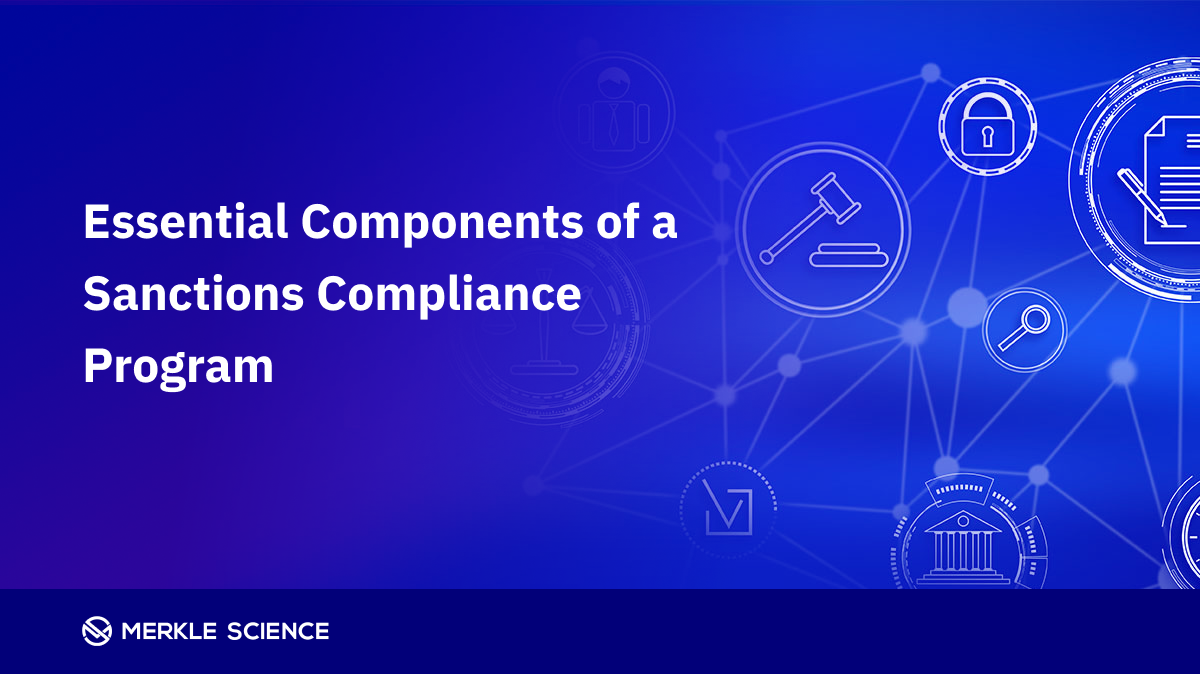Impact of Crypto on Sanctions: Use of crypto to evade sanctions and ways to prevent it

Mary Beth Buchanan

Introduction
Though the regulators accept that most of the activity related to crypto is licit, they are also worried about the increased use of crypto in facilitating illicit transactions. The use of cryptocurrency to dodge sanctions has been a major cause of concern for countries such as the U.S. and international governmental organizations like the United Nations (UN) and the World Bank.
In October 2021, the U.S. Department of Treasury stated in its Sanctions Review Report that cryptocurrencies could potentially undermine the effectiveness of U.S sanctions. The report noted that “digital currencies, alternative payment platforms and new ways of hiding cross-border transactions all potentially reduce the efficacy of American sanctions. The Treasury Department also raised concern that America’s adversaries have been taking steps to reduce their reliance on the U.S. dollar and said new digital payments systems could exacerbate this trend and could erode the power of American sanctions.
In a telegram post, after the publication of the report, Russian oligarch Oleg Deripaska urged the Russian government to use Bitcoin to evade sanctions and weaken the dominance of the U.S. dollar.
Use of cryptocurrency for sanctions evasion
Hiding the Source of Funds: New obfuscating technologies — such as privacy coins, mixers and tumblers, and peel chain methods — are of greatest concern as they provide means for sanctioned individuals to hide the source of funds and evade detection.
Privacy coins, such as Monero and Zcash, hide identifying information that can link individuals to a transaction. For example, Monero and Dash were used in the illicit transactions linked to the recently sanctioned crypto exchange, Chateaux. Privacy coins may make use of the zero-knowledge protocol to shield customer details from another party in a transaction. Funds may also be run through mixers or tumblers to obscure the trail of ownership by pooling it with others’ holdings, scrambling it, and redistributing the funds on the other end.
Liquidating Funds: Sanctioned entities may also use unregulated coin swap services, non-compliance exchanges, P2P exchanges, and decentralized exchanges with weak AML/CFT control to liquidate their funds.
Crypto Exchanges should proactively put checks in places to curb the evasion of sanctions globally
KYC Checks: Regulators around the globe require crypto exchanges to implement robust and comprehensive money laundering protocols that include robust KYC policies and procedures. This allows for greater tracking of potential transactions to or from sanctioned entities, thus discouraging and potentially stopping such transactions.
Sanctions Screening: Crypto exchanges and DeFi protocols should put in place sanctions screening solutions. Sanction screening solutions check entities and organizations against global law enforcement and sanctions lists to determine the risk of performing financial activities with sanctioned parties. Screening transactions against various sanction lists such as the OFAC’s SDN list or the UK’s HM Treasury’s Office of Financial Sanctions Implementation (OFSI) consolidated list. Crypto exchanges should screen wallet addresses against such lists and block any related transactions. Unlisted virtual currency addresses that share a “wallet” with a listed virtual currency address may also pose a sanctions risk and further diligence may be needed to ensure that the transaction does not involve interaction with entities on the list. Additionally, crypto exchanges should also ensure that sanctions screening tools are appropriately flagging geographic keywords in connection with KYC-related screening or other transaction screenings.
The Financial Action Task Force (FATF) and OFAC’s sanctions guidance provide specific examples of red flags that indicate sanctions nexus. Crypto exchanges and DeFi protocols should take note of these red flags and incorporate them into their sanctions/AML compliance program.
Using Geo-Locations Tools: Geolocation tools enable companies to identify IP addresses that may originate in sanctioned jurisdictions. This can help companies prevent persons in sanctioned jurisdictions from accessing their platform and services. Other analytic tools can recognize IP misattribution by identifying users who may be hiding behind a different IP address (i.e. VPN users).
Blockchain Analytics: Blockchain transaction monitoring tools such as Merkle Science provide sanction screenings for wallet addresses that are tagged against sanctioned entities. Methods such as clustering also help identify addresses that have a high probability of being associated with said sanctioned entities.
The majority of the time, it’s insufficient to depend on on-chain data and must look at off-chain data such as behaviors. The OFAC guidance also provides specific examples of red flag behaviors that indicate sanctions nexus. Crypto exchanges and DeFi platforms should take note of these red flags and work with transaction monitoring tools that flag for them. Once these transactions are flagged, exchanges need to report potential violations to the appropriate authorities.
How Can Merkle Science Help?
Jurisdictions around the world are proactively working towards strengthening their sanctions regime and are putting in place checks to curb the use of crypto in sanction evasions. Merkle Science provides sanction screenings for wallet addresses that are tagged and constantly updated against sanctioned entities. Methods such as clustering also help identify addresses that have a high probability of being associated with said sanctioned entities. Further, Merkle Science’s highly customizable platform and proprietary Behavioral Rule Engine allows compliance officers to institutions to detect illicit activity beyond the blacklists so that FIs may catch undetected suspicious activity that legacy providers might miss and better meet AML and KYC obligations as per guidance from jurisdictions around the world.
To find out how Merkle Science works for your business, please contact us via our website.


